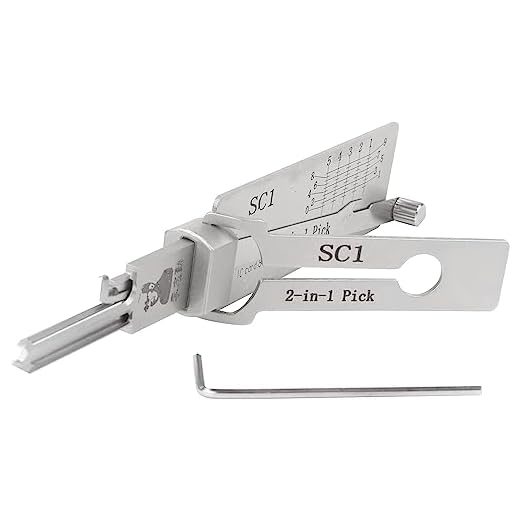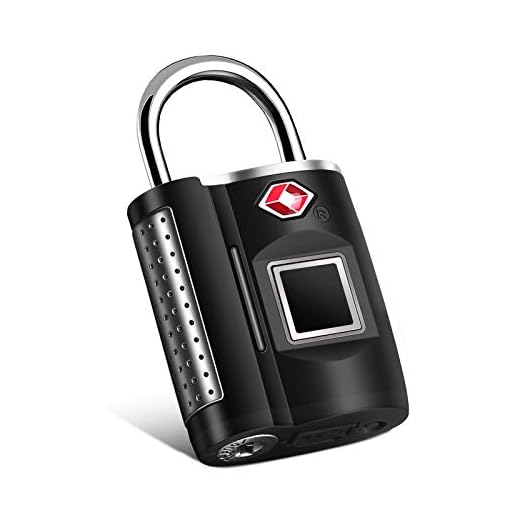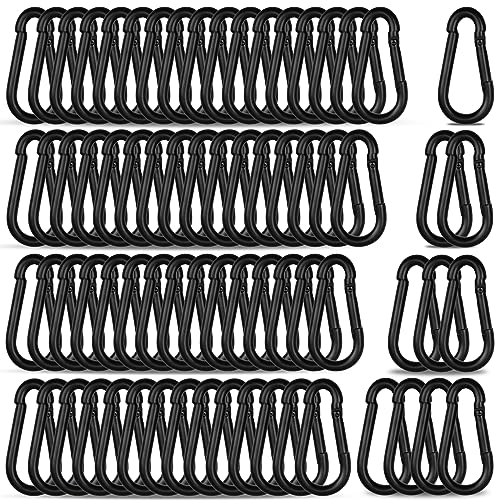



Begin by examining the digits on the lock. If the mechanism was incorrect, try sequentially testing each number from zero to nine. This method may seem tedious, but many codes are simpler than they appear.
Another practical approach involves checking the manufacturer’s website for guidance. Often, they provide insights or reset instructions specifically for their locks. This can save time and reduce frustration.
If you have access to the original packaging or receipt, look for any printed information regarding the security mechanism. Some brands include default combinations or reset procedures that can facilitate access.
In a more hands-on approach, consider using a shim or flat object to manipulate the lock. Carefully insert it into the gap above the lock mechanism while applying pressure to unlock it. However, this method requires caution to avoid damage.
If none of the above tactics work, seeking professional help from a locksmith is advisable. They have tools and expertise to assist without compromising the integrity of your belongings.
Steps to Open a TSA-Approved Lock
Begin by examining the device to familiarize yourself with its features. Look for any visible numbers or indicators that could suggest a default setting.
Manual Reset Option
If your device offers a manual reset, consult the accompanying instructions. Typically, this process involves turning the dials to specific positions before engaging the reset mechanism.
Dialing Techniques
Utilize the following method to determine the code:
| Step | Action |
|---|---|
| 1 | Rotate the dials to the first number and engage the opening mechanism. |
| 2 | Repeat this for each subsequent number, adjusting the dials until the opening is successful. |
| 3 | Take notes of the combinations tried to avoid repetition and to keep track of progress. |
Persistence may be required during this approach. Document unsuccessful combinations to hone in on the correct sequence more efficiently.
Understanding TSA Lock Mechanisms
Each travel security lock functions through a system of pins and tumblers, which respond to a specific numeric sequence. When the right digits align, the lock disengages smoothly. Many locks can be reset, especially after purchasing, allowing travelers to choose their preferred code.
Two standard configurations exist: the three-digit and four-digit locks. The former provides roughly 1,000 combinations, while the latter boosts security with 10,000 potential sequences. Enhanced models may include indicators that signal when a lock has been tampered with. Knowing this can help travelers remain vigilant against unauthorized access.
For those looking for reliable options, considering the best luggage bag brand philippines ensures quality locks are part of your travel gear. Additionally, robust locks often share safety features with the best bicycle pressure washer, indicating a focus on durability and security.
Understanding these mechanisms prepares travelers for challenges, ensuring smoother experiences when managing baggage safety. Familiarizing oneself with the inner workings of locks can save time and frustration, especially during busy travel seasons.
Common Techniques to Crack a Combination Lock
Try the method of listening for clicks while rotating the dials. By gently turning each wheel, you can often hear when the internal mechanism engages at each number. This technique requires patience and careful listening.
Another approach is to use a shim. A thin piece of metal can be inserted into the lock’s gap to disengage the latch. This requires precision and may not work on all types of locks, but it can be an effective option.
Employ the technique of applying tension to the lock while manipulating the dials. By applying slight pressure, you can often feel when the mechanism moves, indicating a possible combination. This method combines tactile feedback with systematic trial and error.
Consider using a stethoscope for a more refined listening technique. This can amplify the sounds of the lock, making it easier to detect clicks and movements as you manipulate the dials.
If you are comfortable disassembling locks, examine the internal components. This can reveal specific mechanisms that may allow you to pinpoint the combination, but this requires skill and should be done with caution.
For those who prefer professional assistance, locksmith services specialize in these situations. They possess the tools and expertise to open a locked piece securely. Additionally, it may be beneficial to consider insurance options for your valuables, such as the best insurance company for umbrella policy.
Collaborate with others in forums or discussion boards. Many individuals share their experiences and provide insights into alternative techniques that may not be widely known.
Using Drop Tests to Determine the Code
For an innovative approach to figure out the numeric sequence, drop tests can be quite useful. This technique involves applying pressure to the lock while simultaneously dropping it from a minimal height. The goal is to identify the correct combination by analyzing how the lock responds to these impacts.
Steps to Conduct Drop Tests
- Choose a firm surface where the lock can be safely dropped.
- Hold the bag securely to prevent it from moving while you drop the lock.
- Drop the bag from a height of about 12 inches.
- After each drop, check if there’s any change in the mechanism’s sound or movement.
- Repeat this process, increasing the number of drops and varying the heights gradually.
Analyzing the Results
Pay close attention to any changes in the locking mechanism. If you hear a distinct sound or feel some movement on a specific drop, it may indicate that a certain number might be close to being correct. Keep a detailed record of the heights and the results from each trial to narrow down your possibilities.
Continue testing various combinations with the insights gained until successful access is achieved. This technique, while not foolproof, has been known to yield results for those needing a quick solution.
When to Seek Professional Help for Locked Suitcases
If attempts to access your secured bags are unsuccessful after several methods, consider consulting a professional locksmith. They possess the expertise and tools required to handle complex locking mechanisms efficiently.
Engage a specialist when faced with severe damage that risks compromising the contents of the cases. Attempting further manipulations could worsen the situation, leading to unnecessary repairs or replacements.
In instances where high-value items are inside, enlist professional assistance promptly. This ensures the preservation of your belongings while minimizing the chance of loss.
If the lock is particularly sophisticated or electronic, experts can provide solutions tailored to that complexity. They can reset or decode advanced systems in ways that DIY methods may not achieve.
Finally, if you’re preparing for a trip and time constraints hinder your ability to resolve the issue personally, leveraging a professional service can provide peace of mind and a swift resolution.
Preventing Future Lockouts with Proper Methods
To minimize the risk of being unable to access your secured travel gear, implement a few strategic practices. Start by choosing a numeric sequence that is easy for you to remember but hard for others to guess. Avoid predictable patterns like ‘123’ or ‘000’ as these are commonly attempted.
Regularly Update Your Security Preferences
Periodically changing your access code can help protect your belongings. Establish a routine for updating the numerical sequence every few months or prior to significant trips. This method keeps your security settings fresh and reduces the chance of unauthorized access.
Utilize Backup Options
Consider using an alternative mechanism for access, such as a secondary key or a digital register. Document your access codes in a secure location, such as a password manager, or share them with a trusted individual. This way, if you forget the code, assistance is readily available.
Always inspect the locking mechanism for wear and tear, ensuring that it remains fully functional. Use lubricants specifically designed for locks to maintain smooth operation, preventing the mechanism from jamming. Following these practices will enhance security and reduce the likelihood of future access issues.







